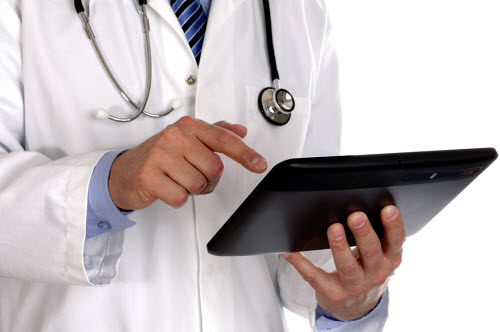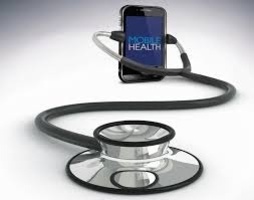A recent Merck survey found that smartphones and tablets are altering the way healthcare is provided.
A new survey by Merck Manuals showed that mobile health technology is changing the game. These mobile digital resources are helping doctors and patients in the way that care is provided. The survey revealed that doctors feel confident in their ability to keep up with digital and mobile technology.
The physician participants in the survey said they were ready for the changes being made in information tech.
The main focus of healthcare has been moving toward value and efficiency. In this effort, mobile health technology has considerable potential for doctors. They feel as though they are properly equipped to keep up with this tech shift.
 The survey involved the participation of 220 physicians. It was held at a recent medical conference at which the vast majority of participants said that mobile technology such as smartphones in their offices has changed the way visits occur. This applies both in the case of their own smartphones and those brought by their patients.
The survey involved the participation of 220 physicians. It was held at a recent medical conference at which the vast majority of participants said that mobile technology such as smartphones in their offices has changed the way visits occur. This applies both in the case of their own smartphones and those brought by their patients.
More than 4 out of 5 doctors feel mobile health technology has changed the dynamic in their offices.
Among the respondents, 81 percent said that being able to obtain medical information over mobile devices has caused multiple changes in their offices. That said, physicians feel they are prepared for what is to come. They feel tech savvy enough to be able to use the devices and apply them effectively to their patient interactions.
Among those who feel prepared for the tech shift – 75 percent of the respondents – two out of three say they use mobile technology a minimum of ten times per day to access medical information. They feel this tech helps them to keep up with patient interaction needs and demands for time.
Eighty percent of the doctors who use mobile health technology devices at work use information they learn from apps and online information databases. They are using this information to provide themselves with more detailed information when making a diagnosis or recommending a patient treatment plan. Another two out of every three are keeping themselves up to date with medical news over mobile devices.

 The Medic Mobile solution is Linux-based and is made possible through a mobile network virtualized by VMware, running on VMware Player. The toolkit enables healthcare workers to gather and transmit patient data wirelessly via
The Medic Mobile solution is Linux-based and is made possible through a mobile network virtualized by VMware, running on VMware Player. The toolkit enables healthcare workers to gather and transmit patient data wirelessly via 